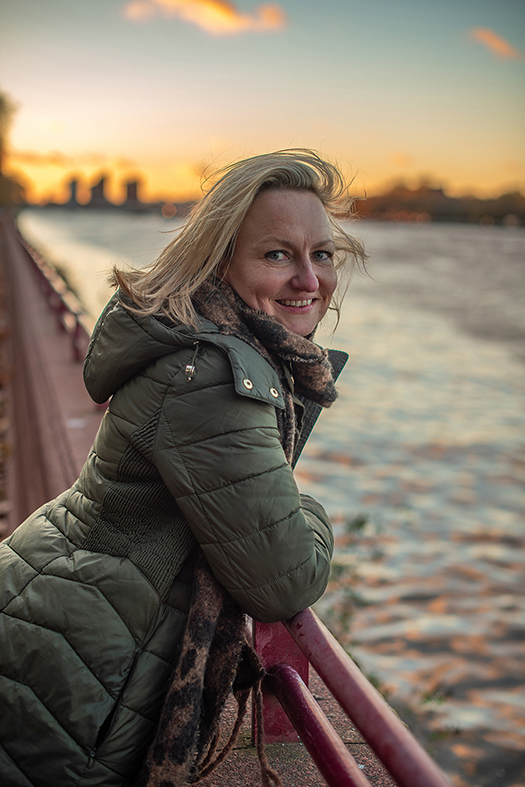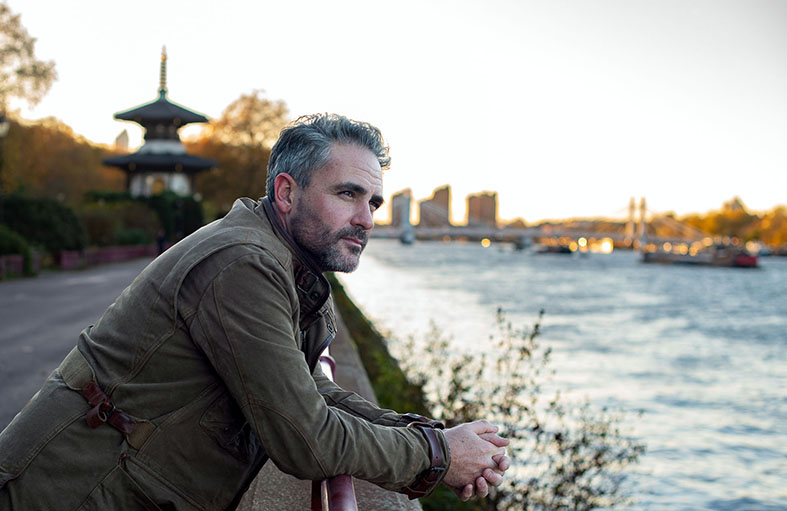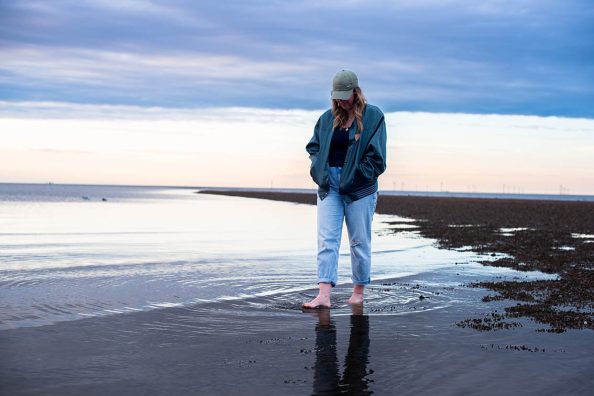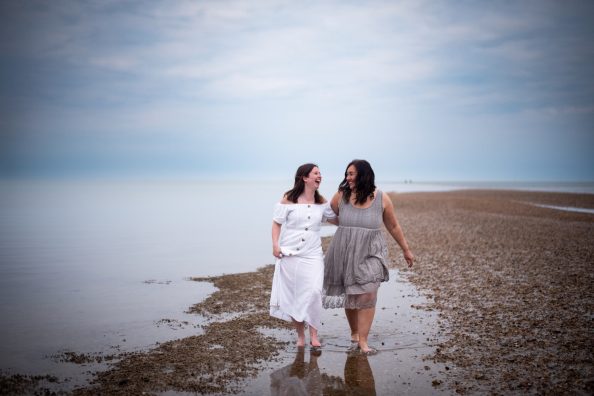World renowned explorer, writer and photographer, Levison Wood, joins me on a walk through Battersea Park in London where he talks about embarking into new creative territories and shares his thoughts on being ‘enough’.
I walk through Battersea Park, along the spirited churn of the grey and swollen Thames towards the location on the south bank where I have been told he will meet me. An hour before sunset, low light is starting to catch on the ripples and bring texture and clarity to the water. I arrive at the imposing power station, its sun-bleached towers stretching into the blue sky. At three o’clock on a Wednesday afternoon, this prominent city landmark is quiet. I wait for the man who has travelled and filmed in over 100 countries, written eleven bestselling books, and made eight acclaimed documentaries.
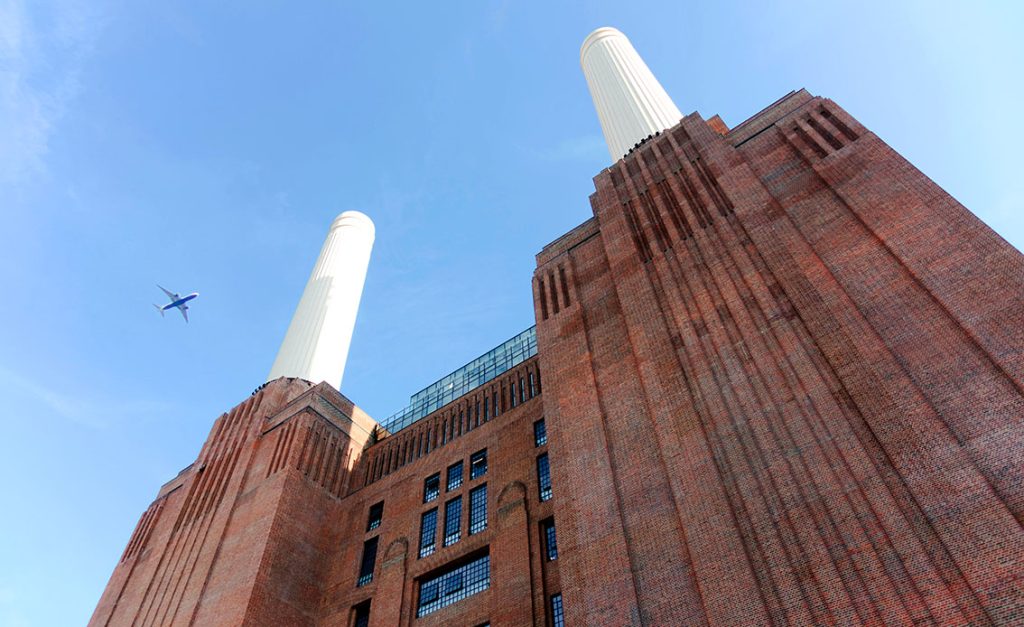
Levison approaches, walking fast paced with a knowing beam on his face in recognition of being five minutes late. Apologising, he bestows me a welcoming and surprising hug. He blows his breath from his cheeks, body language which suggests he is jet-lagged, jaded and juggling a fair bit. “Bali,” he explains modestly, his eyes warm and bright. He is wearing blue jeans and a khaki, casual fitted jacket adorned with buckles, just like an explorer would, right?
“So, what made you say yes?” I ask, squinting through sunlight and battling with my wind-blown hair. Why on earth, I wondered, has a man who has been snapped by plenty of hotshot photographers and featured in endless high-profile media, accepted my offer of a portrait in the park?
“Well, you’ve photographed all my friends,” he reasoned.
“Ah, you felt left out,” I teased, and we chuckled.
We make strides towards the centre of the park. He seems present and receptive. I feel our rapport is evolving. Gaining trust is vital ahead of taking someone’s photograph. If they are at ease, I’m more likely to capture a secret sparkle in their eyes which gives the image depth and power. Moreover, getting them to speak freely requires the same foundation.

“What have you done recently that you’re proud of?” I ask.
“I’ve recently written a book about trees which I’m very proud of because it’s unlike anything I’ve ever written before,” he tells me. “It’s all about the human connection with nature throughout the ages and it’s been a real education for me to delve into philosophy, religion, science and history. It’s quite ambitious, it took a lot of research and I’m pretty happy with the end result.”
Perceptive to the self-effacing enthusiasm in his answer, I broach my next question. “I was going to ask you what you’re excited about, but perhaps you just answered that?”
“Well, I’ve made a movie,” he reveals. “I’ve directed a film for the first time, so that’s exciting. It’s the age-old tale of a hero coming back from war and taking some time to find his feet. It’s set in the present day at a music festival which sounds a bit weird and trippy, and actually is a bit weird and trippy.” He chuckles briefly, but then resumes his earnestness to reflect the gravitas of the subject matter. “It’s representative of a few colleagues of mine who have suffered from PTSD and struggled with resettlement and fighting demons.”
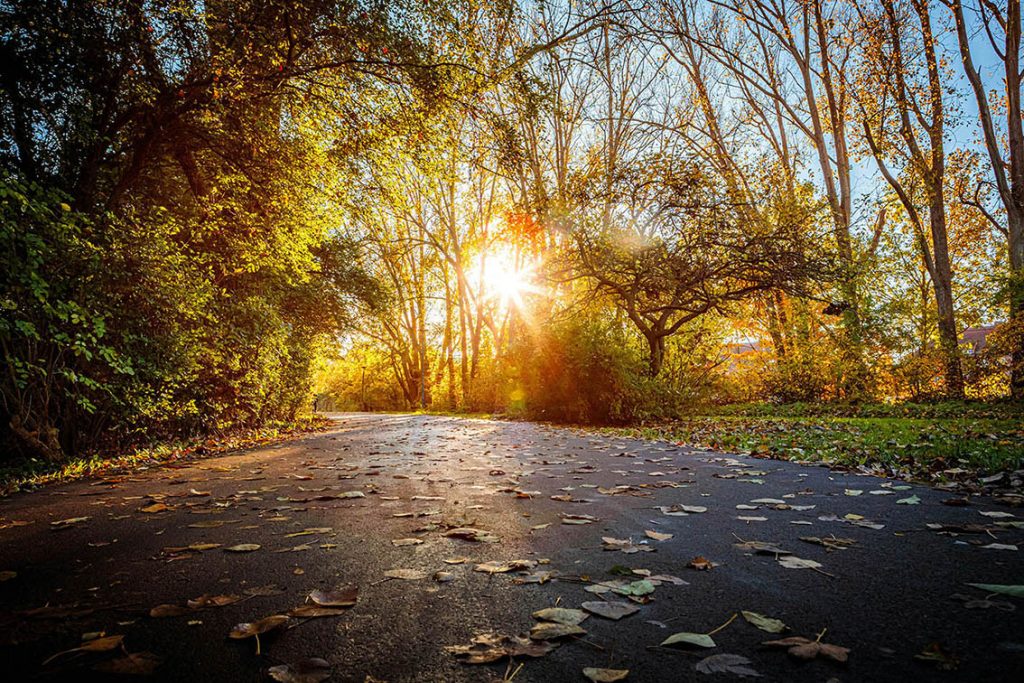
My interest is piqued by his allusion of mental struggles as well as how his experience as a British Army Officer has fed into his storytelling. Eager to move past stories of his recent achievements, I introduce a concept which fuels my own writing and has been the crux of my own demons in the past.
“How do you feel about being enough” I ask. “When is enough?”
“Hmm, that is a good question,” he replied genuinely. “I have spent a lot of time reading about Buddhism and taken inspiration from indigenous cultures around the world and the concept there is that we are already enough. Most of humanity’s ills come from greed, desire, attachment, the idea that we always have to have more. This is actually at the heart of the book I’ve written about trees. The first two million years of our evolution we lived in forests, we lived in harmony and symbiosis with nature, and it’s only really when we settled down, started farming and hoarding, growing more than we needed, kick starting colonialism and capitalism, that it messed up our heads. The only way to cure that is to go back to nature, accepting that we are part of nature. When we accept that, we can then realise that we’ve always been enough. There’s nothing more to it than that.” He laughs good-naturedly. “Does that make sense?
I smile, although his superficial answer niggles a little. “Well, there is a lot more to it,” I reply, wondering if I can coax a smidge of vulnerability from the man who, as The Telegraph once put it, is ‘as hard as nails.’
“Can you think back to a time when it wasn’t enough, and you weren’t enough for yourself?” I persist.
“Of course. There’s a balance to be found. When I was in my late twenties, early thirties, I felt I had something to prove and I was chasing after the next dream. I did all the daft stuff. Bought the sports car and had that lifestyle for a bit, but I realised quickly that it doesn’t make you happy. There’s a time and place in one’s life to go chasing after things. It’s about trying to find that point whereby you draw a line and say that is enough or I am enough, but it takes some people longer to get there than others. Ambition is the thief of joy. I think the less you give a damn about being better than anyone else, the happier you are.”
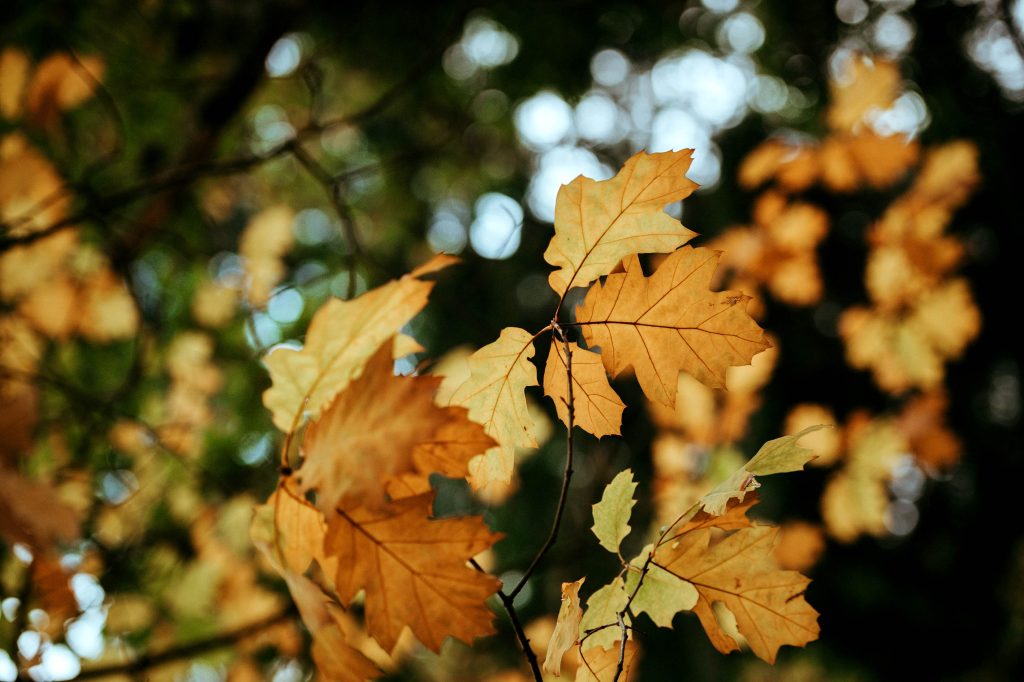
I wonder when and if Levison Wood will ever draw that line. Perhaps he has. Still, I am finding it difficult to align his personification of ambition as the thief of joy with his prolific, ceaseless and worthwhile endeavours. I decide not to probe him further for I am here to take his photograph, not grill him. I accept that, as a mother of three, my experiences on the journey of enough have been wildly different to his. There is no milestone of no longer wanting a sports car within mine. I tell him how training to be a counsellor, helping people change their lives and feeling useful has been fundamental to my own journey of being enough.
“Maybe that’s it,” he acknowledges. “Applying wherever your talents lie into something which is helpful and useful and you get a reward out of – that is enough, isn’t it?
It is.
I photograph him overlooking the river, framed by the spiritual Buddhist Peace Pagoda and the brightly lit urban skyline. It’s a fitting portrait, the juxtaposition of these elements alluding to all he was saying about the conflict between staying true to our natural roots and being lured by the materialism of the modern world. Afterwards, we visit the pond where the orange sun dips further, and reflections of amber and scarlet leaves are painted on the water. Here, I take my final photograph and express my gratitude for his time.
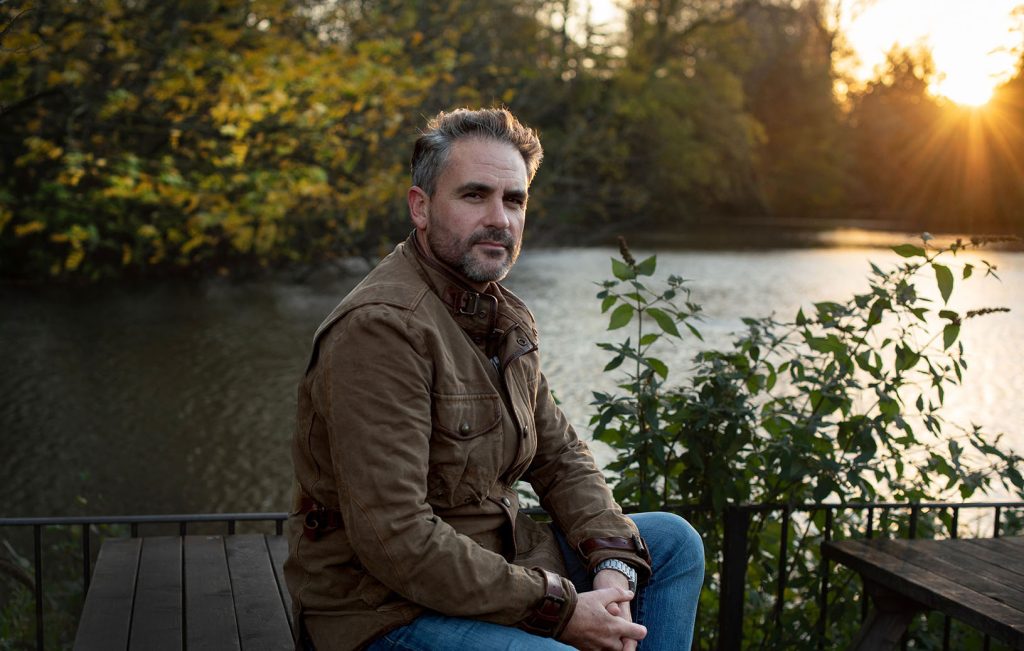
As we go our separate ways, I reflect on the meaning which this encounter has brought me. I realise how, in the past, as I worked hard to develop my own authenticity, I have put great faith in high profile writers, Levison being one of them. I assumed that because he has walked the length of the Nile and circumnavigated the Arabian Peninsula, he has the answers to the great questions in life and I would fan hopefully through the pages in his books looking for them. The thing is, however motivating our role models are, we find our own answers and the only way we do that is by throwing ourselves into the often chaotic and frustrating mess of discomfort that is life and seeing what emerges. It took me a while to learn that this process doesn’t have to involve daring feats like climbing a mountain in Nepal or kayaking the Amazon. It can happen in the most ordinary places and be just as revealing and spectacular. The sea in Kent has been that place for me.
Thank you to Levison Wood for being the intuitive person I thought you would be, for indulging my curiosity, enhancing my journey, and for helping me see that I already have the answers to my questions and that I am indeed enough.
As are you.
The Great Tree Story by Levison Wood is released on 10th April 2025. Before that, the 10th anniversary edition of Walking The Nile on 19th December.
